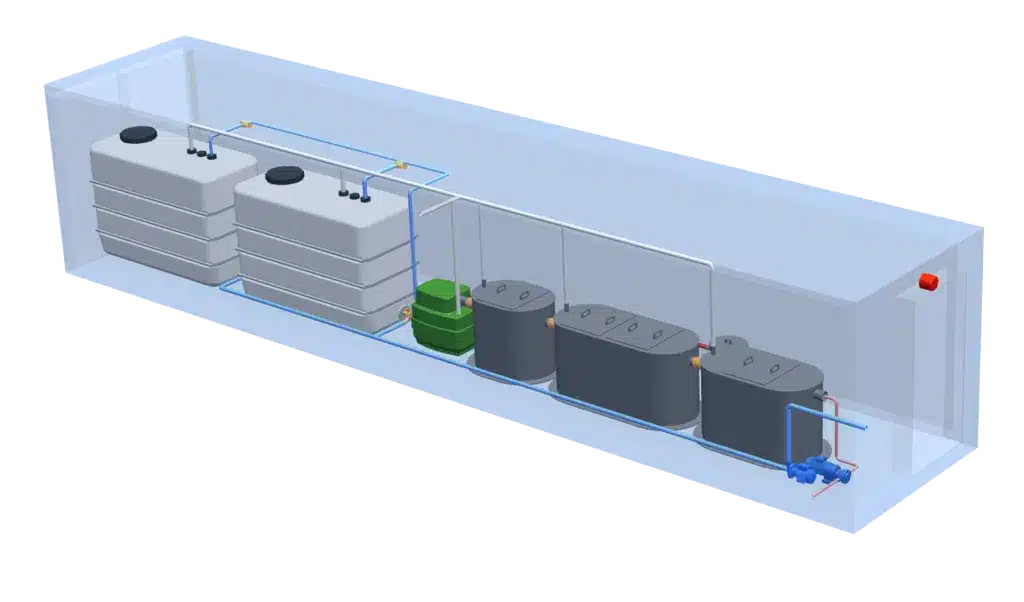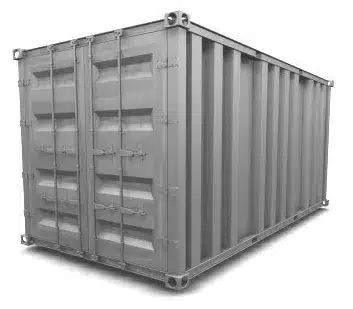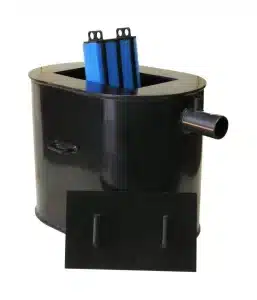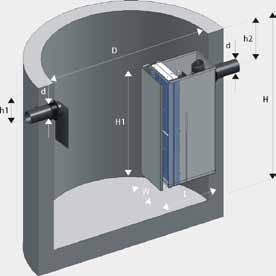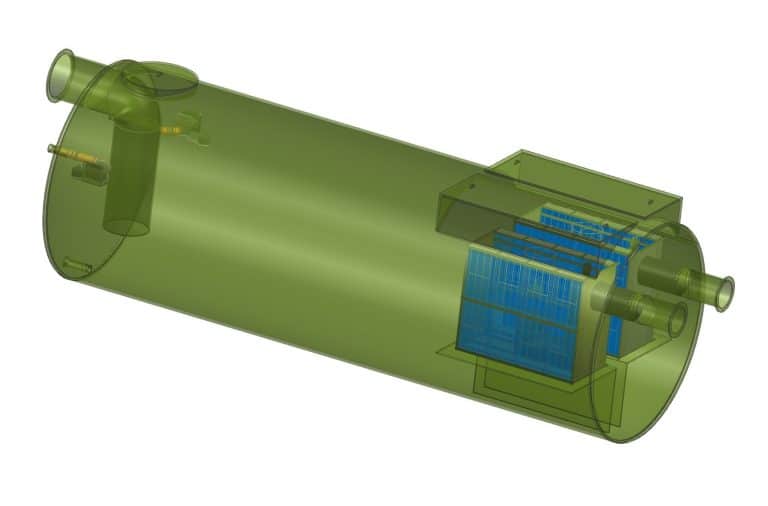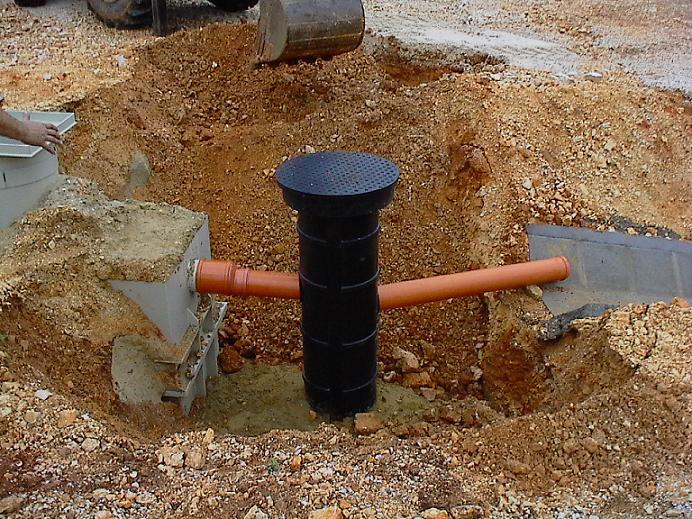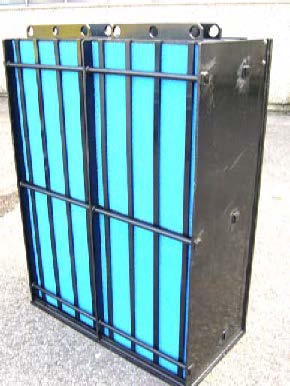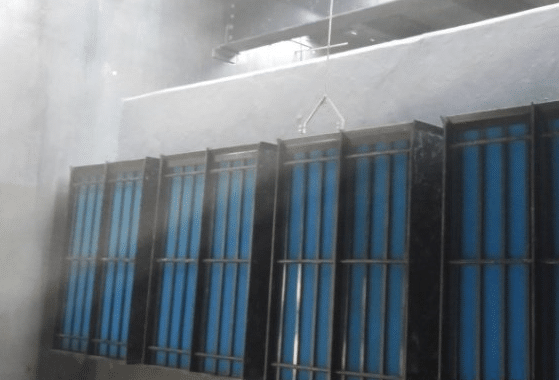Ever wondered how Virginia’s industries keep their wastewater clean and meet regulations? The secret is Oil Water Separator Tanks Virginia. These tanks are key in managing stormwater and keeping the environment safe.
In Virginia, businesses must follow strict rules for wastewater. Oil water separator tanks meet these standards. They remove oil, grease, and light petroleum from wastewater. This protects our water and nature.
These tanks vary in shape and size, fitting different industries. They are made of carbon or stainless steel. Their flexibility helps businesses follow the law and keep our water clean.
Key Takeaways
- Freytech Inc. Oil water separator tanks are crucial for industrial wastewater treatment in Virginia
- They help businesses meet strict environmental compliance standards
- These tanks remove oil, grease, and petroleum products from wastewater
- Available in various designs to suit different industrial needs
- Essential for effective stormwater management and environmental protection
Understanding Oil Water Separator Tanks
Oil water separator tanks are vital in industrial settings. They keep oil and water apart, protecting the environment and following laws. Let’s look at their role, types, and why they’re important for the planet.
Purpose and Function
These tanks have many uses in industries. They’re needed for emergency generators, fuel oil systems, and handling waste oil. They remove oil from water, stopping contamination and keeping our water clean.
Types of Oil Water Separators
There are many kinds of oil water separators for different needs. Aboveground steel tanks are easy to get to and maintain. Flameshield tanks add extra fire safety. Underground tanks save space in places with little room.
Compliance with Environmental Regulations
Oil water separator tanks help follow environmental laws. Corrosion-resistant tanks last longer and don’t leak. Having good spill control is key for safety and following the law. These systems keep oil and water apart, saving businesses from fines and environmental harm.
Oil Water Separator Tanks Virginia: Meeting Local Discharge Requirements
Virginia businesses must follow strict rules for wastewater discharge. Oil water separator tanks are key to meeting these standards. The limit for hydrocarbon discharge in North America is 10 Parts per Million (10 PPM). This rule helps keep our water clean and safe.
API separators and gravity separators are top choices for meeting these tough standards. They remove oil and other pollutants from wastewater well. New technologies have made these systems even better, aiming for a 5 PPM discharge level.
Advanced coalescing technology is a big part of this success. It helps remove free oil from water more effectively. By using these advanced systems, Virginia businesses can go beyond what’s required. This shows their dedication to protecting our water for the future.
Advanced Technologies in Oil Water Separation
Oil Water Separator Tanks Virginia have made big strides in recent years. These new technologies make industrial wastewater treatment better and more effective. Let’s look at some top-notch technologies changing the game.
Corrugated Plate Interceptor Technology
CPI technology is a budget-friendly way to separate oil and water quickly. It comes in different sizes, handling flows from 24 to 1,980 gallons per minute. This makes it perfect for various industrial wastewater treatment needs in Virginia.
Enhanced Coalescing Technology
This tech is great at separating different hydrocarbons from water. It can remove motor oil, diesel, gasoline, and jet fuel very well. Some systems can even get rid of trace amounts of emulsified oil, reaching separation levels as high as 0.1 parts per million.
Freytech Inc.’s Solutions
Freytech Inc. is at the forefront with its cutting-edge separator packages. These systems are pushing the limits of industrial wastewater treatment. By combining the latest technologies, they give Virginia businesses top-notch oil/water separation.
These new technologies are changing Oil Water Separator Tanks Virginia for the better. They offer more efficient, effective, and eco-friendly solutions for industrial wastewater treatment across the state.
These separators are crucial in storm water systems. They process runoff to meet the US EPA’s Clean Water Act standards. With effective oily water treatment, facilities protect the environment and dodge big fines.
Applications and Industries Served
Oil Water Separator Tanks Virginia are key in many industries. They help manage industrial wastewater treatment in the state. Many places like hospitals and data centers use them to stay clean and follow environmental laws.
Emergency generators and petroleum stations use these tanks to avoid contamination. They also help with fuel oil and waste oil systems, making sure oil and water don’t mix.
These tanks are used for both aboveground and underground fuel storage. They handle diesel, oil, and gasoline, preventing spills and leaks. This makes them crucial for treating industrial wastewater in Virginia’s varied businesses.
Manufacturing and automotive plants also use these separators. They remove oil from water, helping businesses meet environmental standards. More industries are turning to oil water separator tanks in Virginia for sustainable operations.
Installation and Maintenance of Oil Water Separator Tanks
Oil water separator tanks are key to protecting the environment. They need to be installed and maintained well to work right. Let’s look at how to set them up and keep them running smoothly.
Above Ground vs. Underground Installation
There are two main ways to install oil water separator tanks. Above-ground tanks are easy to reach and maintain. Underground tanks save space but are harder to install. The choice depends on space and local rules.
Regular Maintenance and Servicing
Keeping oil water separator tanks in good shape is crucial. Regular cleaning stops blockages and keeps them working well. Checking them often finds problems early, saving money on big repairs. Experts can make your system last longer and work better.
Upgrading Existing Systems
Older oil water separator tanks might need updates. New tech can make them work better and be kinder to the planet. Upgrades like automatic gauges or better filters can help meet new rules and improve performance.
Whether your tanks are above or below ground, getting them installed and maintained right is important. Regular checks and updates keep your oil water separator tanks protecting the environment.
Conclusion
Oil water separator tanks are crucial for treating industrial wastewater in Virginia. They remove oil from water, helping companies follow strict environmental laws. Many industries, like manufacturing and automotive shops, use these systems.
New technologies like the Corrugated Plate Interceptor (CPI) and better coalescing systems make oil water separators work better. These updates lead to cleaner water and better protection for the environment. Companies in Virginia have many options to fit their needs and budgets.
It’s important to install and maintain oil water separator tanks correctly. They can be above or below ground. Regular care is needed for them to work well. By choosing quality equipment and following best practices, Virginia businesses can manage their wastewater well and protect the environment.

